- Home
- Bryce Courtenay
The Family Frying Pan Page 2
The Family Frying Pan Read online
Page 2
It was deep into autumn and Mrs Moses had no idea how long it would take to walk out of Russia, but with winter almost upon the land she did not possess a warm coat. Furthermore, her cast-off shoes were worn through, the uppers cracked.
For such a journey she quickly realised she would need both coat and boots in good condition. Mrs Moses looked about and soon found the body of Mrs Abrahams, the village know-all. Mrs Abrahams owned a good pair of boots, which had been fashioned out of the best leather available by the village bootmaker for her daughter’s wedding just two weeks previously.
Standing over the dead woman, Mrs Moses addressed her politely. ‘Mrs Abrahams, this is Sarah Moses, you don’t know me but I know you, I was a kitchen servant to Rabbi Rabin, and also an orphan whom he took in when my parents were killed in a previous pogrom. As you can imagine, there is no future for me here now and I know God will help me to walk to freedom in your nice new boots much admired at your daughter’s wedding. I thank you for your generosity, may you dance in heaven wearing a pair of golden slippers.’
Then Sarah Moses looked around for a good coat and soon enough came across Mrs Solomon. Brushing the flies from the dead woman’s mouth, she explained, ‘Mrs Solomon, the good Lord will keep me warm but on this occasion he needs a little help from you. A helping hand no less, one final act of charity from someone who was never very famous for her charitable works. When you arrive in paradise may you wear a cloak of peacock feathers that fall from your shoulder all the way to the ground.’
With Mrs Abraham’s new boots on her feet and Mrs Solomon’s excellent coat on her back, she knelt in the ashes of the destroyed village and said a prayer. ‘Lord, with the help of Abraham the Patriarch to guide my feet and the wisdom to wear a warm coat that comes from Solomon, maybe I got a good chance to make it out of Russia. I ask Your blessing and Your guidance.’
Then she rose and turned to the dead Mrs Solomon. In the good boots and fine warm coat Mrs Moses felt very grown up and confident as she looked down at the dead woman who was now wearing only a light cotton shift. The flimsy garment had ridden up to show her knees and thighs so that Sarah Moses adjusted it, speaking to her as she pulled the hem down to Mrs Solomon’s ankles. ‘I am sorry, my dear, but there are not ten good male Jews present to form a minion to say the Kaddish for you and also Mrs Abrahams. When I get out of Russia, I promise I will pay a rabbi to say the prayer for the dead for the whole village and with a special mention of your generosity and also Mrs A.’
After making this promise, Mrs Moses walked over to the rabbi’s house where she fossicked among the smouldering ashes until she came upon a very large cast-iron frying pan. It was a pan much used in the household for it was large enough to embrace a meal for five or six people, maybe even more. Picking up a rag, she wrapped it around the still hot handle of the frying pan and, using both hands, plucked it from the warm ashes. Then, looking heavenward, she pronounced, ‘I swear to God that the generations to come who eat from this pan will taste no more the bitter fruit of life.’
While the boots and the coat made perfect sense, the heavy cast-iron frying pan seemed a curious thing for her to choose to take with her on her journey. After all, she had a whole village of dead people’s things to choose from, stuff she might barter on the way, yet she chose a pan she could barely lift and nothing else.
The frying pan had a hole at the end of the handle through which she threaded a piece of rope, tying it in a loop that she strung around her neck so that the pan would rest against her back. Sarah Moses then put on Mrs Solomon’s coat, which gave her an altogether curious appearance. The weight of the pan pulled her straight as a ramrod yet she appeared to have a curious hump to her back when she walked. She had no clear destination in her mind, but thought only to walk away from the cold and out of Russia forever.
There is a time in the history of almost every nation when those who are in power are so removed from the common people that they have no sense of their suffering and, finally, their anger. They are oblivious to the foment around them and cannot see the signs of their own demise, which in retrospect will have been obvious.
These were the years before the revolution when the frozen roads out of Russia were filled with the starving, the dispossessed and the hungry. All were trying for a new life, not only Jews, but people from every faith and social background, who, because of their foolishness, politics, dreams or misbegotten ambitions, had been marginalised. They were the gypsies of despair on a road to nowhere they could name other than that it should be some place beyond Russia where they could once again nourish the seeds of hope. They came from every part of the mother country, preferring to die on the rutted road to freedom than to starve in the dark cellars, the rat holes of the great cities. It was among this peripatetic throng that Sarah Moses now found herself.
They would walk in small groups, spending the day fossicking for scraps. Mrs Moses would search for twigs until, by nightfall, when they stopped to huddle together so that they might keep warm, she had gathered a bundle sufficient for a fire. ‘Come around, friends,’ she would shout at all and sundry, ‘I have a good fire and a fine frying pan, God will supply the rest.’
It stands to reason that on some occasions she would have gone hungry but that’s not how Mrs Moses tells it. Her story has it that someone would reach into the interior of a shabby coat and produce an onion, someone else would find a couple of potatoes in the pockets of a pair of threadbare trousers, a few cabbage leaves would appear from inside the blouse of one of the women, then a jar of fat or a small lump of meat from somewhere else. Soon enough there’d be a meal bubbling in the pan that would be divided equally among them, Sarah Moses careful to keep the smallest portion for herself. The Family Frying Pan, with a little help from the Lord, never failed her. With a few warm scraps in their stomachs, the mood would lift and a violin would appear and they’d sing the melancholy songs about Mother Russia and starvation when the crops failed or when the Cossacks came and they’d cry a bit and tell stories with sad endings.
And so the days progressed through the first harsh winter and into early spring. They had stopped for the night and the usual fire was going with The Family Frying Pan set upon it, the scraps gathered during the day just coming to the boil. Sarah Moses had removed Mrs Solomon’s coat and had used it to wrap around a baby who had been born to one of the women in the group two days previously. Though the sun had set, it was not yet dark and people were moving about in the vicinity of the fire, ready to settle down for the night, when around a turn in the road about two hundred metres away appeared a troop of Cossacks.
It took only a moment for those around the fire to react and only a moment longer for the soldiers to turn their horses in the direction of the fire and to come charging in, striking at the motley group with their swords and clubs. People were running towards the protection of a small wood, screaming as they were cut down. Sarah Moses seemed to be the only one among them to somewhat keep her head, though what she did next would seem foolish enough to have cost her her life. She snatched The Family Frying Pan from the fire and emptied its contents on the ground and slung it by its rope into its accustomed place about her neck. Such was her panic that she didn’t feel the pain as the rim of the pan burned through her dress and seared the flesh of her back. Next she removed the baby and, placing it beside the fire, she put on the coat. Finally, gathering the tiny infant in her arms, she began to run.
By now she was well behind the rest of the fleeing people, some of whom had reached the safety of the dark woods. Others lay dead where they had been stabbed or clubbed down, their blood flowing into the rutted road and filling the hoof marks, their brains splattered in the muddy soil.
The captain of the troop, wearing a high plumed helmet and gold epaulettes on his long grey military coat, galloped furiously up to the wildly fleeing Sarah and stabbed his sword into her back as he dashed past. Its blade snapped instantly and the impact of the suddenly halted blow sent the captain flying out of hi
s saddle and over the head of his horse to land on his head, snapping his neck and killing him instantly under the furious hooves of the oncoming horses.
Sarah Moses was also sent flying by the blow from the sword but somehow she managed to cling to the baby as they rolled together in the mud. As she struggled to her feet, almost instantly a second horseman swung at her with his mighty club, sending her sprawling, though still she held onto the tiny infant. The blow from the club should have killed her instantly for it was aimed at the centre of her back, to snap her spinal cord.
In all the yelling, screaming and the whooping of the Cossack troopers, the clang as the club struck the metal of the frying pan went unheard as did the anguished cry of the trooper as his wrist snapped and his club fell to the ground. Again Sarah Moses rose and continued to run and again a third horseman struck at her with his sword, to repeat the performance of the captain, breaking his neck.
Rising once again, she managed to reach the safety of the woods.
From where they hid within the dark woods, some of the travellers who had managed to escape from the Cossacks witnessed the attacks on Sarah Moses. Not only had she made it to safety but two great swords had snapped like matchsticks as they attempted to pierce her body, and a club had bounced off her harmlessly. Moreover Sarah had clung to the baby throughout the terrible ordeal and had brought it with her unharmed. The infant, covered in mud, now suckled happily enough at her mother’s breast.
They immediately declared it a great miracle and after a minimum of discussion pronounced Sarah Moses a living saint. They concluded that she had been sent by God and pointed to the fact that her name was Moses no less, the same as the great patriarch who had led the children of Israel out of the land of Egypt. It took only a tiny leap of imagination to see Sarah as his reincarnation, sent to lead them safely out of Russia. There was only one small catch, Moses was a married man and Sarah was a sixteen-year-old girl and it would be difficult in the Russian language to find a patronym which extended to her the correct amount of respect. So, after a little more discussion, they simply dubbed her Mrs Moses.
When in 1986 Mrs Moses died and my mother-in-law deemed it unseemly for her to travel to the funeral parlour in Larry Hinds’ T-shirt, my mother-in-law dressed Mrs Moses in a fresh linen nightgown and, while doing so, saw for the first time a curious scar on her back that formed a perfect circle across the breadth of her tiny body.
And now, as Mrs Moses told it to me in her own words, here is the story of how she led her people out of the wilderness…
THE SEASONS
The seasons in Russia are not like Australia where, in most places, the differences between summer and winter don’t merit the possession of an overcoat.
However, the preoccupation Mrs Moses had with the weather is as much a part of her story as anything else. Spring was hope, summer was life, good and bad, autumn was at first beguiling but then became a warning of misery to come, and winter meant death.
So that the story of The Family Frying Pan can truly be told I must tell you about the seasons in which it took place. Using a tape recorder and with only a minimum of grammatical correction, mostly because spoken words are not placed in quite the same way as when we write, I have put them down as the old lady spoke.
I found her words to be beautiful. It was as if she had practised them all her life, polishing them, sounding them, rounding and smoothing each on her tongue until they became more than language and carried within them the essence of Russia at that time before the revolution.
Spring
It has been a lovely spring day, still cold, for the ground has not fully thawed, though the sun is bright enough for hope to leap like skipping children into our hearts. The streams in the woods, last remembered as muddy pools in the late summer, now rush with the blue melt of snow and, even though the ground clanks like iron when you stamp your feet, stiff green shoots of daffodil and lily-of-the-valley push through the frozen mud. The sap rises in the forest so that the branches, the small tender branches, show tight green buds at every extremity. High in the sky a lark sings and the breeze carries the first scent of honeysuckle and almond blossom.
Summer
It is the sunsets, always the sunsets, that make me feel that the day on the road has been worthwhile. That the dust and the flies and the muddy puddles after sudden rain, the turgid rivers and the heat are bearable as we walk our road to freedom. Russia is such a big country, such an endless place where walking all day seems to bring you to the same spot. And everywhere the struggle to stay alive, so much space filled with so much pain.
It is easier to find food, and the gold of the ripened corn stretches so far across the horizon that its reflection burnishes the sky. Summer evenings are an enchantment, that part of the day when Mother Russia rests her burden for a few short minutes to dip her brush into a palette of ripened wheat and then to paint the sky with the burning colours of hot, urgent life.
Autumn
The autumn days are beautiful, mellow and tranquil at first. There is a ripeness about everything, a proper conclusion to all things. The sky is a serene blue and there is a feeling of restfulness in us all. But then things start to brood, at first a little sulky, or in polite language, a trifle melancholy as the heat begins to fade and the days to shorten. Finally impatient and spent of energy by the long, hot summer, the mood darkens and a sense of malevolence, of unease, thickens the air.
The wheat and the corn are harvested, the fields shorn, scythed clean, emasculated, husked and exhausted. The sky glows the colour of old pewter and the leaves, the tears of the dying forest, begin to drop silently to the ground. The wind now comes from the north like a shrill whistle through clenched teeth. A fine rain falls, misted spray that seeps into our clothes and squelches through the broken leather of our boots. The sun weakens and grows pale as though seen through algid water and the air is stale and still. Darkness comes suddenly, with a cluck of the tongue or the snap of malevolent finger and thumb.
Winter
God has gone absent from Russia, left us to fend for ourselves, defeated by the endless snow, the malice of the howling wind, the remorseless ice drifts, the bone-white horizon bleak beneath a firmament where the stars have turned off in a vacant sky that offers not the slightest hope.
We plod on when we can, stiff legs wrapped in rags, but for the most part there is no winter journey in this ghost landscape. We’ve stored what little food we have, a bag of flour bargained for with bits and pieces we still possess, it must last against these evil, endless months. We are rats gnawing on anything we can find. The old people die and our tears are frozen irritations against our cheeks. Death is such a constant visitor that we can only sigh, it brings a mouth less to fill and the threads taken from old backs can now be used to cover younger, stronger bones.
Winter in Russia is the white wolf of suffering and each day we dread its howl and fear that it will run us down, that it will rip and tear and devour, so that we will not make it to the end of this stark and terrible bleakness.
SOMEWHERE IN RUSSIA
We have made the evening fire and all of us have gathered what twigs we could find on the day’s journey. Now it has burned down to the embers. My famous Cossack-defying frying pan, with a dob of lard, sits spluttering and spitting on the soft glow. The meal, as usual, will be turnips, potatoes and onions. And, if we are lucky, maybe a little red cabbage, all of which will be scavenged by my fellow travellers and given willingly at the day’s end to be shared among us. Occasionally, a scrawny old winter-worn rooster is bargained from a peasant for a kopek or two, or a nest of field mice or a clutch of quail eggs is discovered. These are happily dumped into the pan. But mostly it is the same, and with it what’s left of the rough, coarse ember bread we bake at dawn for the day’s travelling.
‘What shall we have tonight?’ I ask my fellow travellers. ‘What delicious concoction, splendid banquet or magical meal? What delectable and memorable supper, special treat or delight to assault the nos
trils, what delight to send our taste-buds into a frenzy and to seduce our palates?’
And always someone will raise a hand. Sometimes a learned professor, or a musician, a chef’s wife, a seamstress, a blacksmith, a scholar, two lovers or even a circus acrobat. It doesn’t much matter. In the business of food there is no pecking order and all come equally to the table of the imagination.
‘Ah!’ someone will say. ‘How well I remember dining with the Tsar, His Imperial Majesty himself. And, of course, the Tsarina and the five girls and Prince Alexei, the heir to the throne. Let me hasten to add, this was not a State occasion, only a simple meal with a few close friends in a smaller ballroom in the grand palace in St Petersburg, no more than two thousand present. Such a cosy little feast.’
‘The recipe story!’ we will all urge at once. ‘Tell us what we will be tasting tonight!’
And so the recipe storyteller will begin and we begin to feel the delicious salivation of anticipation. The contents of the pan, now bubbling on the fire, will soon be ready. We will share the food, the turnips and potato and onion and cabbage, perhaps only a few spoonfuls each. But, ah, what spoonfuls! For we feast on the words of the storyteller and, if words can make a stomach contented, by journey’s end we will all be plump as partridges.
SUCH A CLEVER LITTLE MUSHROOM
Anya puts up her hand tonight. She is a thin woman with a sad face, perhaps in her late twenties or much younger even. Russia and a poor marriage make short work of a beautiful bride. Yet there is still something left. Her eyes are blue as cornflowers and there is a fullness to her lips and, surprisingly, none of her teeth are missing and they are white and perfect, so that her smile is serene and angelic. At night she will sing to the children with a voice like a thrush and she loves to read aloud. It is as if her books are good friends which she must share with us, for Anya has love to give to all. Her baby is the infant, wrapped in Mrs Abraham’s coat, whom I scooped up when the soldiers of the Tsar attacked. She is in love with Mr Mendelsohn, the violinist, and their love, even out of wedlock, is pure and clean and beautiful. Often she will gather wild herbs and mushrooms in the fields and woods and add them to our humble evening fare to make a feast out of a turnip, or turn a potato into a prince of vegetables.

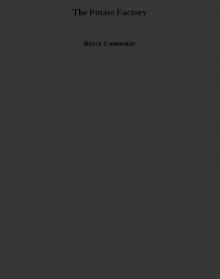 The Potato Factory
The Potato Factory The Power of One
The Power of One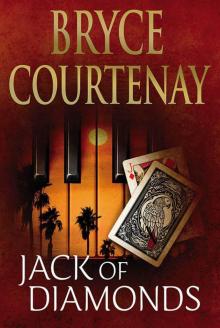 Jack of Diamonds
Jack of Diamonds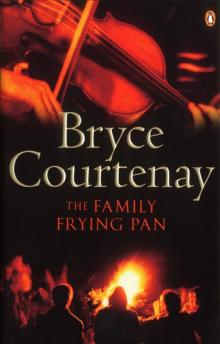 The Family Frying Pan
The Family Frying Pan April Fool's Day
April Fool's Day Smoky Joe's Cafe
Smoky Joe's Cafe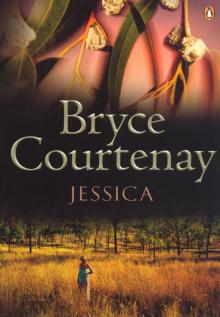 Jessica
Jessica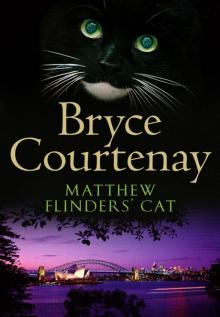 Matthew Flinders' Cat
Matthew Flinders' Cat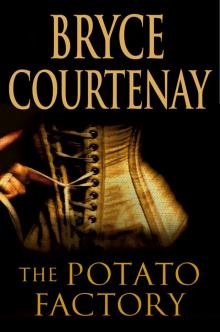 Potato Factory
Potato Factory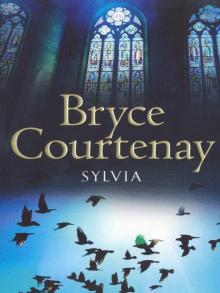 Sylvia
Sylvia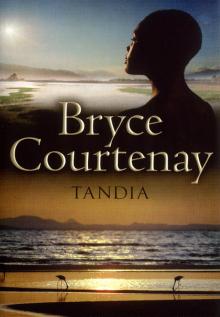 Tandia
Tandia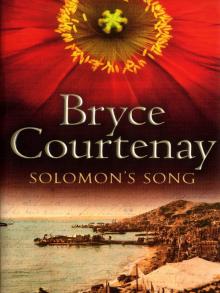 Solomon's Song
Solomon's Song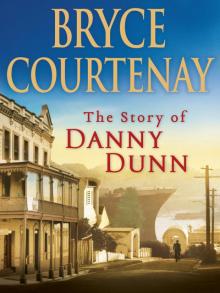 The Story of Danny Dunn
The Story of Danny Dunn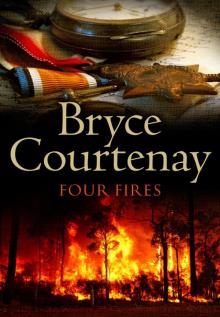 Four Fires
Four Fires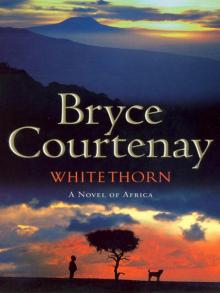 Whitethorn
Whitethorn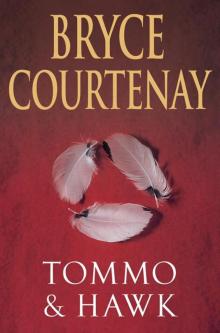 Tommo and Hawk
Tommo and Hawk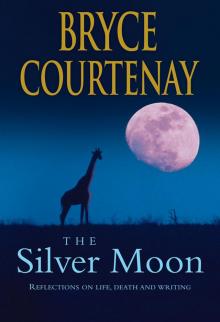 The Silver Moon
The Silver Moon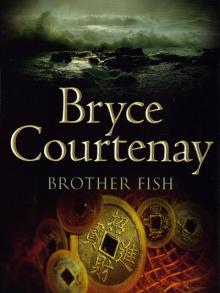 Brother Fish
Brother Fish FORTUNE COOKIE
FORTUNE COOKIE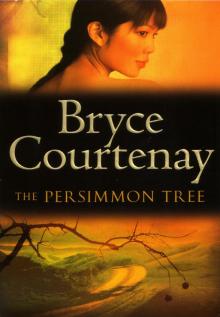 The Persimmon Tree
The Persimmon Tree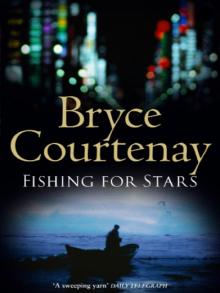 Fishing for Stars
Fishing for Stars